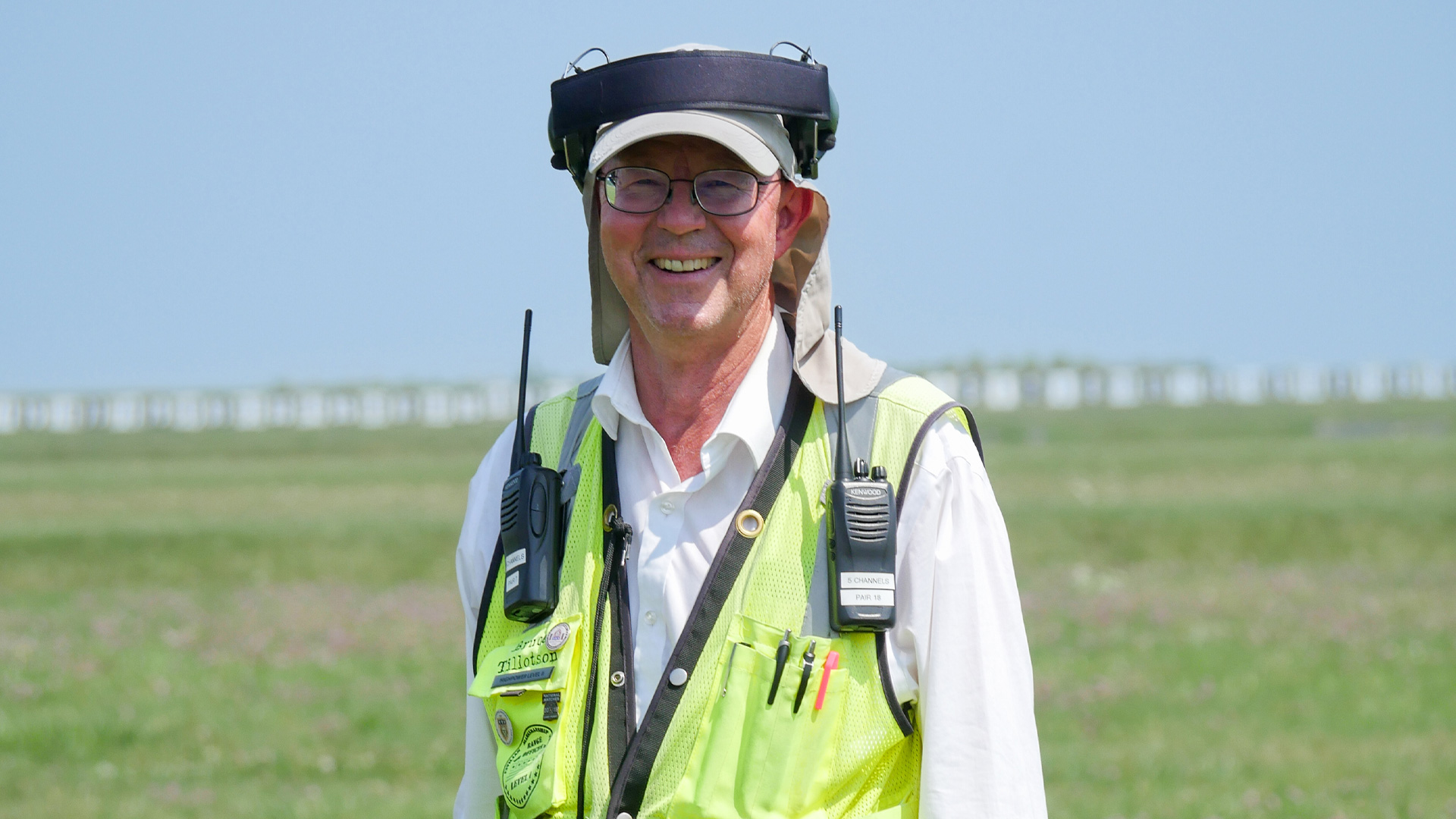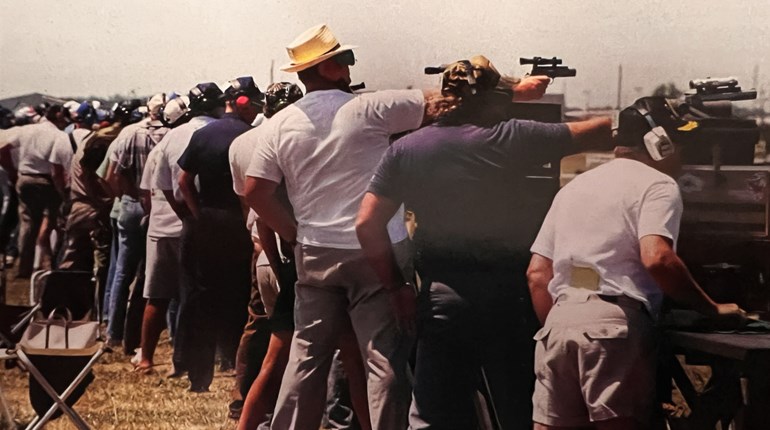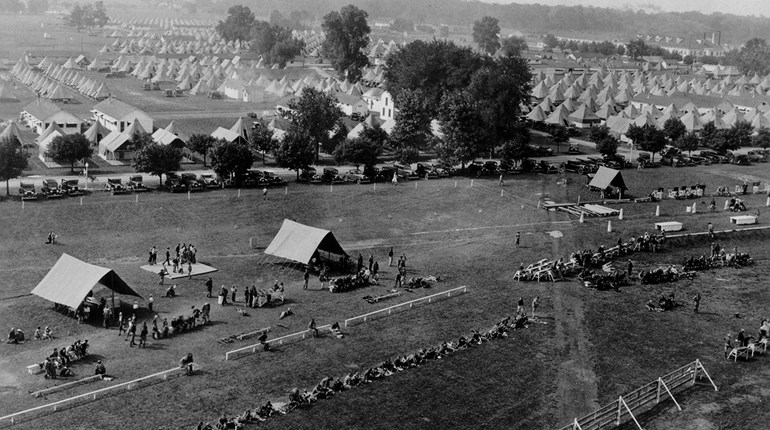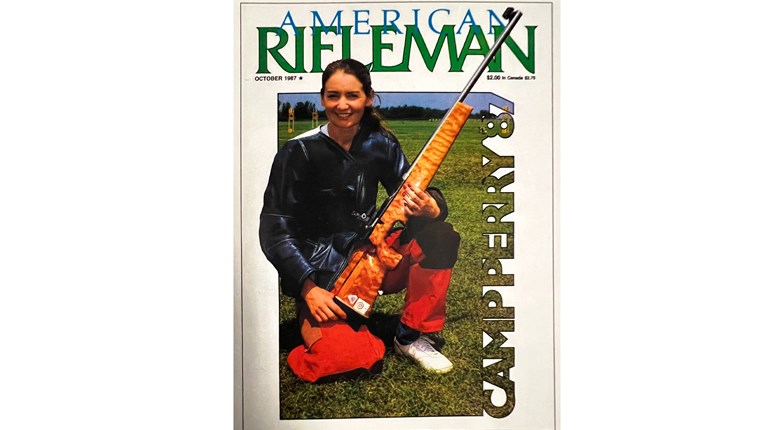
Meet Bruce Tillotson. He has been part of the National Matches as a range officer for nine years. He is from Lodgepole, Nebraska, a small town with a population of 314 that boasts a gas station and a post office, and works installing solar water systems for ranchers to pump water for the cattle. In 2014, he saw an ad in the NRA’s American Rifleman magazine looking for volunteers and decided to come give it a try. Although Bruce has been volunteering at Camp Perry for nine years, he considers himself a newbie compared to some of the other support team members.

The first year was a learning curve for Bruce; everything was new and a little overwhelming. After one of the matches, there was a group of range officers sitting in a table at the end of the day in the shade and invited Bruce to join as he walked by.
“They had seen me struggling and so that's when I learned the value of having somebody else that you can talk with about what went on in the day, get advice and you know, camaraderie or so.” This moment inspired Bruce to get together with three or four range officers to stay in a house on the base each year.
He invites the new and returning range and pit officers over to the house for food and drinks at the end of each day. He knows how overwhelming it can be. If they’re on their own, they’re less likely to return.
“If they have somebody to share their experiences with, you have somebody else that has been through the same thing then, maybe it isn't so bad.”
By providing a safe space to vent and learn from seasoned professionals, Bruce said he hopes that new support staff members won’t be so overwhelmed and be more likely to return the following year. Bruce has had over 16 people at the house for an evening of burgers and beverages.
Bruce enjoys shooting World War I and pre-World War I rifles at a 1,000-yard steel range back at home, so he doesn’t participate in the National Matches but many of the Range Officers do while they’re here.
One of the best parts that keeps Bruce coming back year after year is watching different levels of marksmen and seeing the same faces year after year. “My favorite part is always the end of the day when you sit down, and the chaos is over. But the other thing is we get to see some really good shooters. And after you recognize a competitor who's been here a couple of years, you can actually see that they've gotten better.”
RANGE OFFICERS
Ready on the right?
Ready on the left?
Ready on the firing line.
If you’ve been to the National Matches, you’ve heard those words time and time again. Range officers have the important job of ensuring the matches run safely and efficiently, but more than that, becoming part of the CMP National Matches Support Team is an experience that will leave you with lifelong friendships, a sense of community, and give you a unique way to be a part of the National Matches at Camp Perry.
Kathy Harding, the CMP’s chief range officer, explained the primary responsibility of a range officer is safety—making sure magazines are out, actions are open and safety flags in. Each line range officer is assigned a section of firing points to be in charge of, usually around 10, but it depends on the match.
“Some other duties include pit to line communication for things like marking targets, assisting with challenges and communicating with center line if an armorer is needed, delay updates or competitor issues,” she said. A newer range officer will be assigned a place between two experienced range officers so they’re never far away from someone who can help. If you don’t know what any of that means, don’t worry there is training for that.
The range officer community is very welcoming and fun. Aside from the after-work dinners at Bruce’s place, Harding describes the group—as a family, especially when people stay as long as five weeks. Many support staff have days where they compete in matches, too. If you’re considering volunteering for the 2024 National Matches, it’s likely to be an experience you won’t soon forget.
Learn more about CMP at thecmp.org.

































